Following the launch of ercol’s new sustainability-focused range, we took the chance to visit the factory and learn more about how the British brand is trying to shape the future of furniture making in the UK.
Boasting a heritage that spans just over a century tells a story of consistency, quality and a reputation that is hard to match. What it also outlines is a constant practice of innovation, from design to process. For ercol, the mantra of design has been a core root within its foundation ever since Italian designer Lucian R Ercolani founded the company back in 1920.
Rather than reflecting on their rich history, and when given the opportunity to explore the factory and showroom you really get a sense of such heritage, this article focuses on a new era for ercol as the business plants the seeds for the future, with two eyes firmly fixed on the next century.
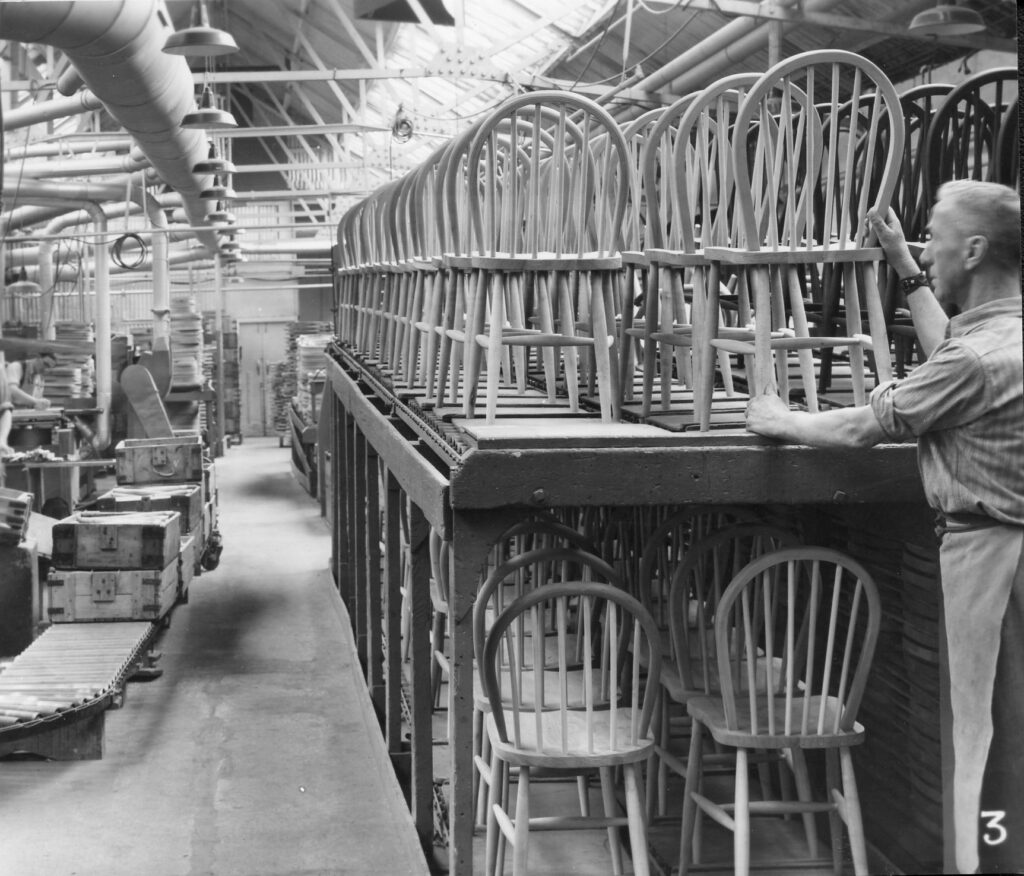

How can you plan for the next 100 years or so, you ask? Well, for ercol, this new era the business is embarking on comes in the form of a new partnership with Grown in Britain (GiB), marking the beginning of a long-term vision for ercol to re-establish its supply of British grown timber. It’s a truly remarkable and sustainable initiative.
To set the scene, our editor was invited to the ercol factory based in the market town of Princes Risborough, just a short distance away from the company’s founding location in High Wycombe – also known as furniture manufacturing hub through the years. The ercol office, showroom and factory moved to its current location in 2002.
The 160,000sqft factory combines the very latest technology with time-honoured craftsmanship to create a range of unique furniture, including some of their most iconic pieces that have really become timeless. The factory has won a number of awards for its architectural design and environmental features too, and incorporates both new machinery and traditional practices under one roof. In fact, one particular part of the tour was getting hands on with steam bending.
Watching the masters at work, this skill has been embedded in ercol since the 1950s and takes years to perfect. Hand bending, which is only used on the Evergreen Chair, is another skillset that only a few in the business can do. Working in pairs, when the wood has been steamed the right amount, it is placed into a steel strap, or restraint, with both sides locked in simultaneously – a key part of the process. Then the bending begins, with each side being bent at the same time in a fluent motion. Once in position, more clamps are placed to help protect against grain breakage. When watching this, it looked so effortlessly easy. However, as our editor found out, it’s a tough task, but a satisfying one – and even more satisfying that it was done with the Chairman, Henry Tadros, himself.
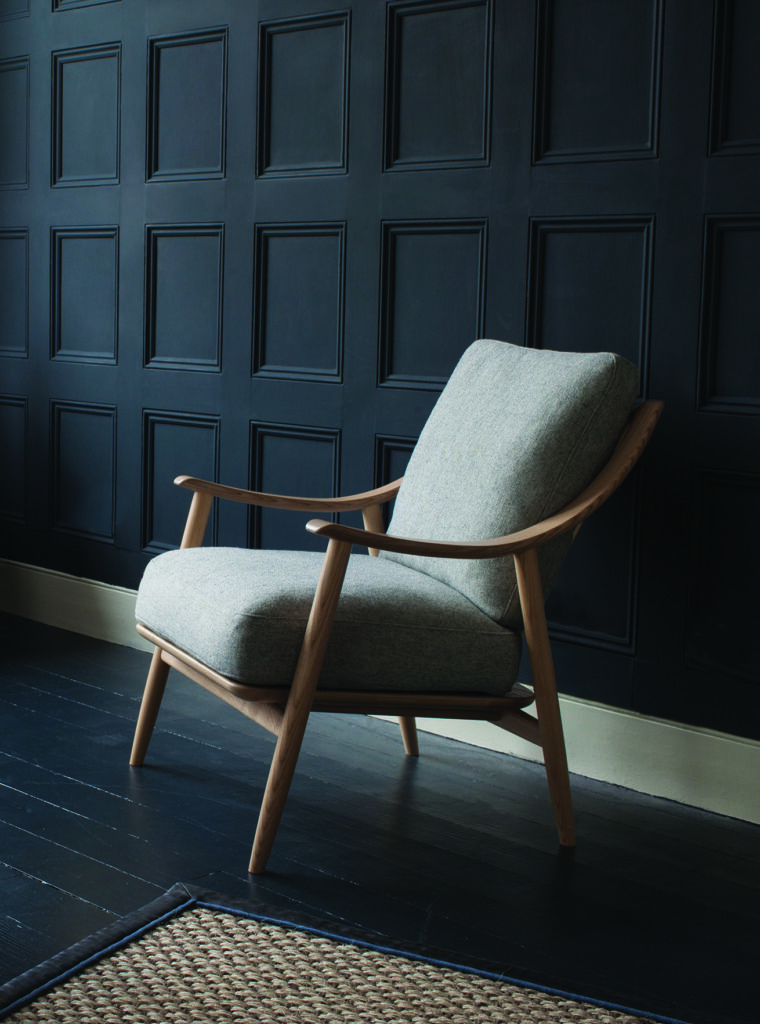
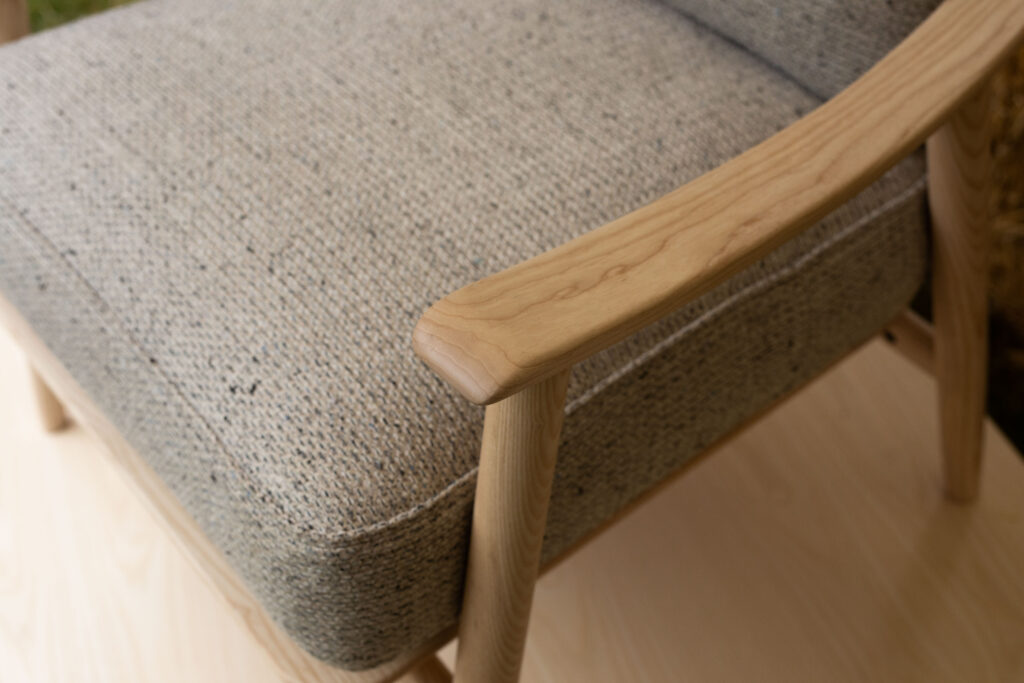
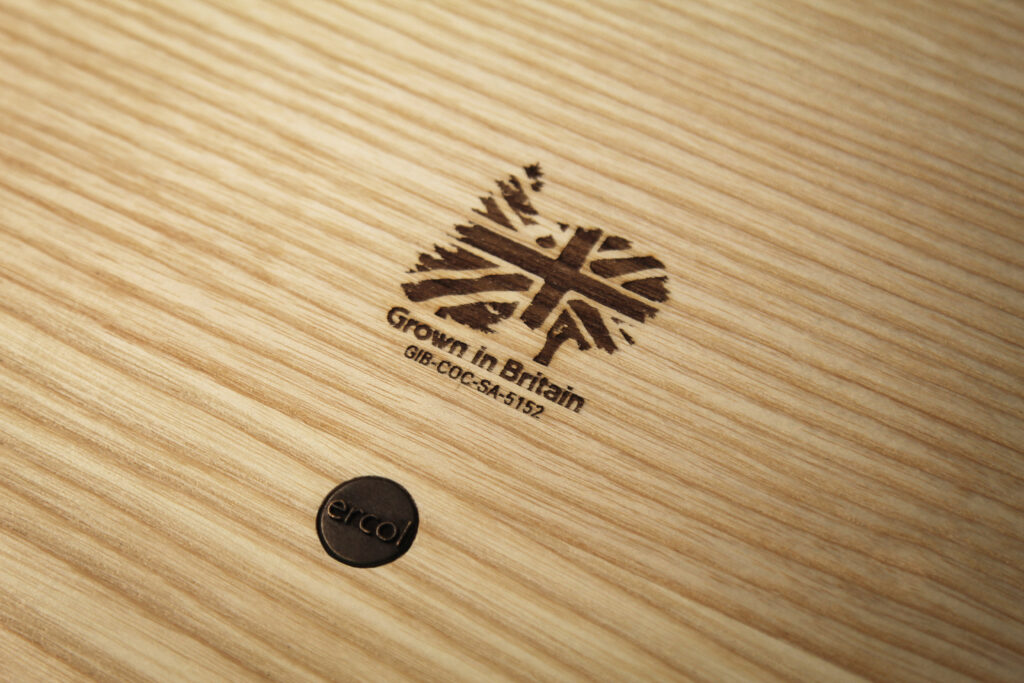
This was just one element of the tour that left an impression of the attention to detail that goes into ercol furniture – alongside the amount of sanding that goes on. In a later feature, we will explore the factory visit in more detail, as we shift our focus back to the story at hand.
Back in September 2023, ercol announced its landmark partnership with Grown in Britain (GiB), becoming the first furniture manufacturer to use British timber at scale since the 1980’s. Through the partnership, ercol aims to help strengthen the demand for British timber, which in turn will encourage land owners to establish and improve the management of British forests, providing a sustainable supply of British grown timber.
“It’s a really important project,” Henry Tadros, Chairman and 4th Generation of the family business, said. “For circularity purposes, we want to use British timber and we have developed a partnership with GiB and incorporated this on selected products. It’s better for our lead times, quicker turnaround, and most importantly supports our green journey, helping to reduce our carbon footprint.
“We are the first furniture maker in UK to use British wood (timber) since 1980’s at scale. With the new range, 120 retailers have taken the GiB pieces, and they are helping to get the message across to consumers. There’s an education period and this is very much a long-term project with other pieces in mind to develop this concept further. It’s another level up from the made in UK label as we are actually sourcing the timber from the UK rather than importing, which is then made in our factory.”
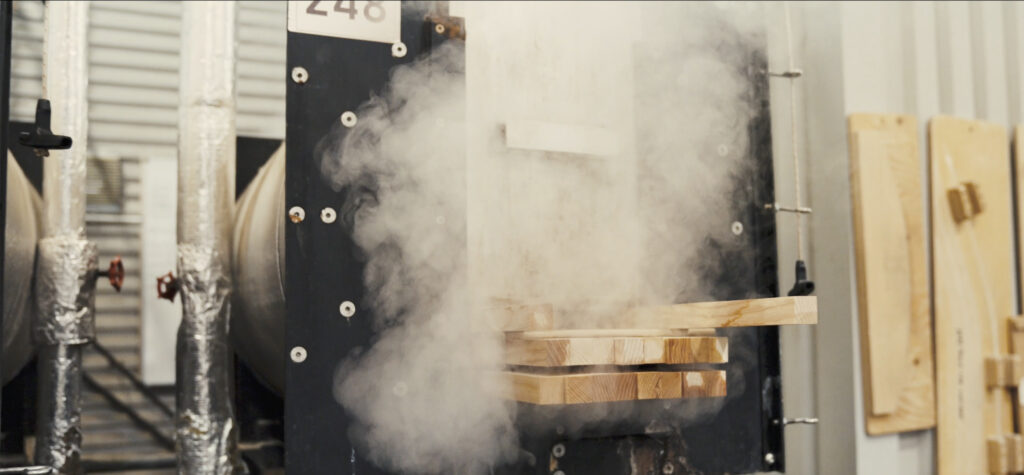
The first piece’s part of the launch included the Marino chair and sofa, and the Pebble nest of tables. These iconic designs are now made by hand from British certified ash at its Buckinghamshire factory and headquarters. “They have been chosen based on known timber volumes so we can ensure consistent production and quality,” Henry continued.
“This partnership will drive direct investment into the British timber industry, with the vision of establishing a home-grown supply chain whilst supporting and helping to maintain our British woodlands. We’re founded on a love and passion for timber. Which is why we’re incredibly proud to be using British grown ash once again.”
The partnership has been three years in the making and, as Henry said, this is a long-term strategy. So, why now?
“For decades, there have been concerns in Britain around homegrown timber supplies, particularly of hardwoods,” Henry said. “In1944, our founder Lucian Ercolani’s first major contract was to make 100,000 Windsor chairs for the Utility Furniture scheme, which had been introduced to cope with wartime shortages and rationing of raw materials.
“80 years later, Britain remains the world’s second-largest net importer of timber products after China, with over £8 billion-worth of wood products shipped in every year. It’s not that we don’t have woodlands here, of course: forests occupy around 13% of the UK’s land area, and over 14,000 hectares (around 35,000 acres) of new woodlands were added in 2020/21 alone. The problem is that large swathes of these woods are under-managed.
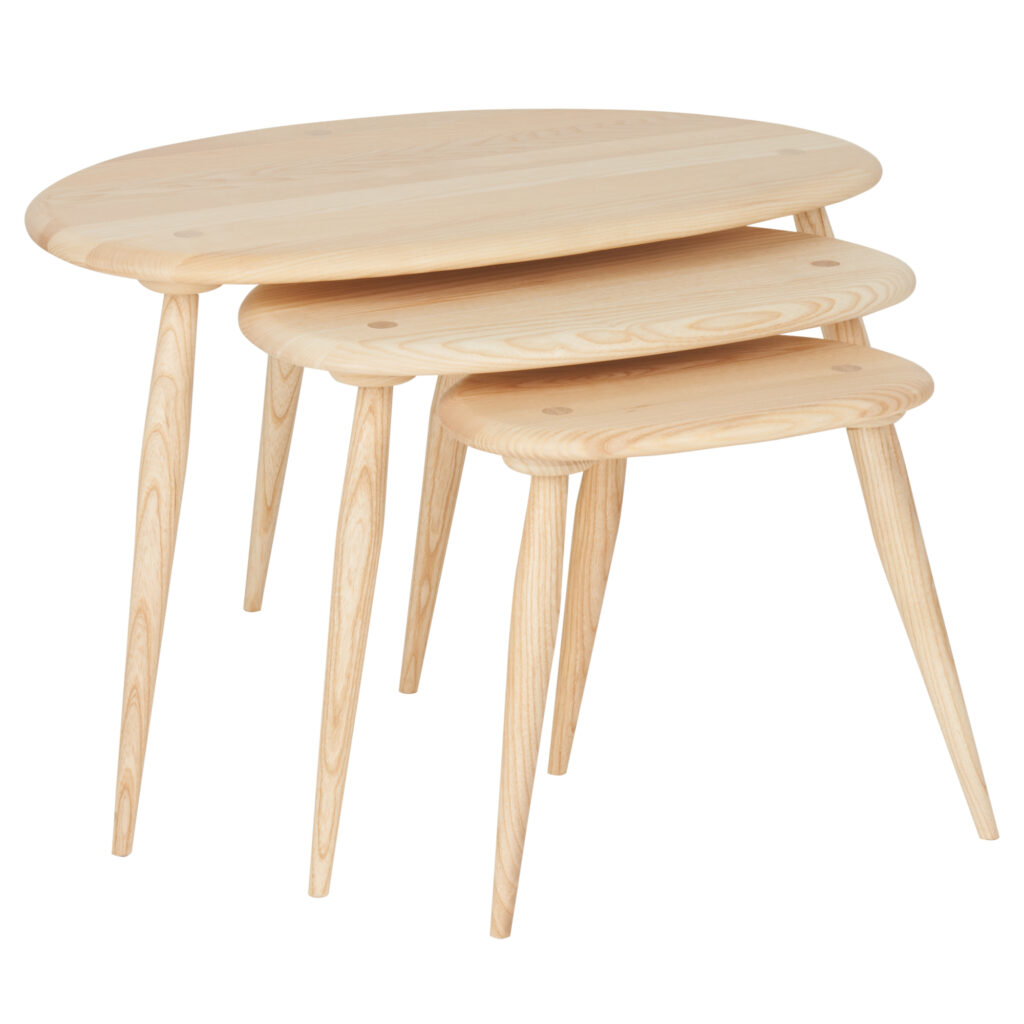
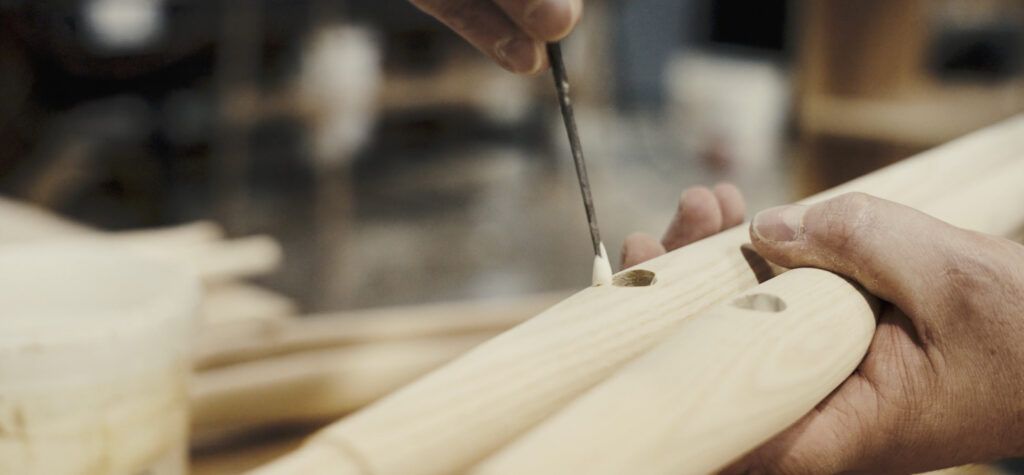
“As well as being far less productive overall than they used to be, they no longer produce wood of the right quality in sufficient quantities for furniture-making – in fact, over 85% of locally-sourced hardwood is simply burnt as fuel.
“Grown in Britain (GiB) was founded 10 years ago to strengthen the domestic supply chain and reduce dependence on imports through improved forest practices. This is a mission close to our own hearts, so we’re delighted to be the first UK furniture maker to work with GiB to make products from homegrown timber in at scale quantities.”
Henry added that the partnership will play an important part of ercol’s sustainability journey and with the range already seeing early success, the ambition to grow looks promising. “Our new GiB range is also encouraging investment along our entire supply chain, helping to demonstrate that working with sustainable certified British timber is both commercially viable and environmentally responsible. It’s a small, but important, step and we’re looking forward to continuing the journey in future.”
In its latest set of accounts, ercol has recently reported flat sales with revenues for the year ended 31 December 2022 remaining consistent with the prior period at £20.2m.
UK sales were up 2.6% to £19.4m from £18.9m, while EU sales fell 59.3% to £236,000 from £581,000. Rest of the world sales declined 38% to £495,000 from £802,000. Pre-tax losses resulted at £283,000, narrowing from a loss of £443,000 recorded in the previous year.
Stated within its report, the company said that gross margin increased from 28.9% to 30.3% despite continuing cost pressures. “Improved gross margin has been achieved with better efficiency in our factory both in terms of personnel costs and use of overheads,” ercol said.















